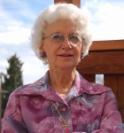 The call comes in: “I took a loan out 3 years ago and now I want a reverse mortgage because I can’t make the payments.” I respond, “Great, the reverse mortgage eliminates mortgage payments and allows borrowers to stay in their home.” I define that a reverse mortgage is a mortgage like any other loan but with special terms for seniors 62 and older and borrowers still have the title and are responsible for property taxes and insurance, association dues (if applicable), maintaining the property and abiding by the terms of the loan. Then I also review some other details of the reverse mortgage including that:
The call comes in: “I took a loan out 3 years ago and now I want a reverse mortgage because I can’t make the payments.” I respond, “Great, the reverse mortgage eliminates mortgage payments and allows borrowers to stay in their home.” I define that a reverse mortgage is a mortgage like any other loan but with special terms for seniors 62 and older and borrowers still have the title and are responsible for property taxes and insurance, association dues (if applicable), maintaining the property and abiding by the terms of the loan. Then I also review some other details of the reverse mortgage including that:
- There are no income or credit score requirements to qualify.
- No monthly payments required.
- There is no limitation on how the funds can be used.
- Funds can be received in monthly payments structured as needed, line of credit (with a growth rate), lump sum, or a combination of these.
- Social Security and Medicare are not affected because it is a loan.
- Medicaid can still be received with the reverse mortgage.
- The loan is non-recourse which means there is no personal liability to the borrower or their heirs if they are not retaining ownership.
- If the home is sold for more than the loan balance, the borrowers or their estate keep the difference.
Then after further discussion and review of their situation, I state, “Let me get some information so I can see how much reverse mortgage proceeds there are in your situation.”
The reverse mortgage needs to be in first lien position which means any current liens need to be paid off with the reverse mortgage. There needs to be enough funds from the reverse mortgage to do this. Often when a mortgage was done a few years ago, when I run the numbers I often find there aren’t enough proceeds to pay off their current mortgage. Sometimes they are only short a few hundred dollars and they can come up with the funds needed to do the reverse mortgage (sometimes it’s only a matter of a monthly payment). Other times they are short thousands. For one couple who called a couple of weeks ago they were short over $40,000 to pay off their current mortgage. Once I run the calculation with these scenarios I then have the difficult call back to tell this senior that the reverse mortgage is not an option.
I often hear of 70 and 80 year olds who are taking out a 30 year conventional mortgage and then they have to work in order to make the mortgage payments. What happens when they can’t work and can’t make their mortgage payment?
I wish they would get the facts on reverse mortgages and get over their fear and do the reverse mortgage instead of a conventional mortgage in the first place. Instead of doing the conventional loan, if the reverse mortgage would have been done originally the senior would be in a different situation now – a much better one.
Lower home values and higher loan balances contribute to the issue. While the reverse mortgage rate is historically lower than conventional mortgages and the reverse mortgage has many benefits over conventional loans, there was a fear that made the senior take out a conventional mortgage instead of a reverse mortgage. Then “life happens” and we get the call and we often have to deliver the bad news, not enough reverse mortgages funds to pay off the currant mortgage.
Closing costs are comparable (See my Blog, “Reverse Mortgage Costs – High or Mythical’), interest rates historically lower, so in the big picture the reverse mortgage costs less. No monthly payments and options on how the funds can be received, the guarantee of funds and non-recourse features all make a reverse mortgage a better choice for seniors.
Even if one can qualify for a conventional loan today, when “life happens” (health, medical issues, can’t or don’t want to work any more, home repairs or modifications needed) and the monthly payment can’t be made, the seniors get into the balancing act of, “Do I make my mortgage payment or pay my other expenses.” and if they can’t or don’t make the payments they’ll be at risk of foreclosure. With the reverse mortgage this risk goes away because no monthly payments are required so they don’t have to worry about deciding between paying the mortgage or their other expenses.
Let’s look at one senior couple. Four years ago they took out a conventional loan for $25,000 to meet their immediate needs. Last year because they needed more funds they looked at a reverse mortgage. Based on their home value of $120,000 and their age they would qualify for $75,000 in reverse mortgage funds, closing costs of $9,000 and a lower interest than their current conventional loan or than what they would qualify for on a new conventional loan. (Remember to qualify for a conventional loan income, credit, assets and risks are taken into consideration to determine interest rate. The reverse mortgage interest rate is not affected by income, credit, or assets.)
Yes, the closing costs on the $25,000 conventional loan were lower than the reverse mortgage because the conventional bases the fees on the amount received, $25,000 in this case and the reverse mortgage bases the fees on the full home value – this is because over time they can be access the full home value or even more than the home value. In their situation the initial loan closing costs were $3,000 for the conventional loan.
With the reverse mortgage they would have had a lower interest rate, no monthly payment requirements and funds in a line of credit that would grow so more would be available for future needs. One can’t get these benefits with any other loan.
They decide against the reverse mortgage and to do a conventional loan for another $25,000 and pay closing costs of another $3,000.
Now let’s look their situation in another two years:
- They initially accessed $25,000 with closing costs of $3,000
- The 2nd loan they accessed for another $25,000 with closing costs of another $3,000 totally $50,000 in funds received and $6,000 in closing costs.
- Looking at their financial history, in another 2 years more than likely they will be contacting their bank for another loan. So at this point their situation would be (if they can even qualify) another $25,000 and another $3,000 in closing costs totally accessing $75,000 and a total of $9,000 in closing costs. This doesn’t include the interest rate expense that would be higher than on a reverse mortgage.
They would have been smarter if the reverse mortgage would have been done initially or at least at this point in time. Over time would have been able to access more than $75,000 including the growth rate, closing costs would have been the same and interest expense would have been less. In addition they would not have had to make payments, improving their cash flow through the years, the funds would be guaranteed for them, and the reverse mortgage is non-recourse so in the end they only pay what the home could be sold for without having to come up with the difference, or they get to keep any remaining equity if the home is sold for more than the loan balance. (On a conventional loan the borrower or the estate could be responsible for the difference if the loan balance is higher than what the home can be sold for.)
And a few years from now they may not qualify for a conventional loan so they would have paid the $6,000 in closing costs to receive $50,000 and have made payments through the years. Then when “life happens” and they can’t afford those payments, they could be facing foreclosure, and maybe not qualifying for a reverse mortgage. And if they do qualify for the reverse mortgage, they will then have to pay the closing costs adding the closing expense on top of what they have already paid. All in all, the reverse mortgage would have been less expense in the long run. View “Is Waiting To Do A Reverse Mortgage The Best Decision” for a comparison of funds now or in the future. It’s important to note that their banker thought that the reverse mortgage through us was a much better option for this couple.

Satisfied MN Reverse Mortgage Client
Marlene who initially did a conventional mortgage and then turned to us to do a reverse mortgage said when she did the conventional loan she didn’t understand the reverse mortgage and so was afraid to do it. At the reverse mortgage closing she said she wished she had done the reverse mortgage in the first place. She’s just glad that we were able to help with the reverse mortgage when we did.
In conclusion, when one is in their senior years the reverse mortgage is generally a better choice than a conventional mortgage, even if they do qualify for a conventional loan. If one does the reverse mortgage instead of a conventional loan their retirement years will be so much smoother, less stressful – they’ll have peace of mind along with security, independence, dignity, and control. And when at a future date they do decide to do a reverse mortgage we won’t have to deliver the bad news that there aren’t enough funds to pay off a current mortgage. They should have done the reverse mortgage in the first place.
© 2010 Beth Paterson, Beth’s Reverse Mortgage Blog, 651-762-9648
This material may be re-posted provided it is re-posted in its entirety without modifications and includes the contact information, copyright information and the following link: http://wp.me/p4EUZQ-cz
Blog posts’ information is current as of date post published, program is subject to change in in the future. Contact us for current information, 651-762-9648.
This site or the information provided is not from, or approved by, HUD, FHA, or any US Government or Agency.
 “A reverse mortgage has brought me bountiful solutions to resolving financial issues. Its benefits enabled me to achieve the means to better enjoy living in my own home. The equity available was spent in several areas for home improvement. Included were remodeling of my bathroom, new carpeting throughout my home, and installment of a sump pump to prevent basement floodings. Herewith also personal challenges, as a pledge to my church fulfilled and travel to family weddings and reunion assured.
“A reverse mortgage has brought me bountiful solutions to resolving financial issues. Its benefits enabled me to achieve the means to better enjoy living in my own home. The equity available was spent in several areas for home improvement. Included were remodeling of my bathroom, new carpeting throughout my home, and installment of a sump pump to prevent basement floodings. Herewith also personal challenges, as a pledge to my church fulfilled and travel to family weddings and reunion assured. This is a letter I received from a borrower who had taken out her reverse mortgage over 5 years ago. Through the years I have heard from other borrowers on how the reverse mortgage has made a difference in their lives.
This is a letter I received from a borrower who had taken out her reverse mortgage over 5 years ago. Through the years I have heard from other borrowers on how the reverse mortgage has made a difference in their lives.




















 Home care and a reverse mortgage can help fulfill a senior’s wish of staying in their home when some extra help is needed. Consider the desires of the senior, what are their wishes? What will make them comfortable and give them peace of mind?
Home care and a reverse mortgage can help fulfill a senior’s wish of staying in their home when some extra help is needed. Consider the desires of the senior, what are their wishes? What will make them comfortable and give them peace of mind?